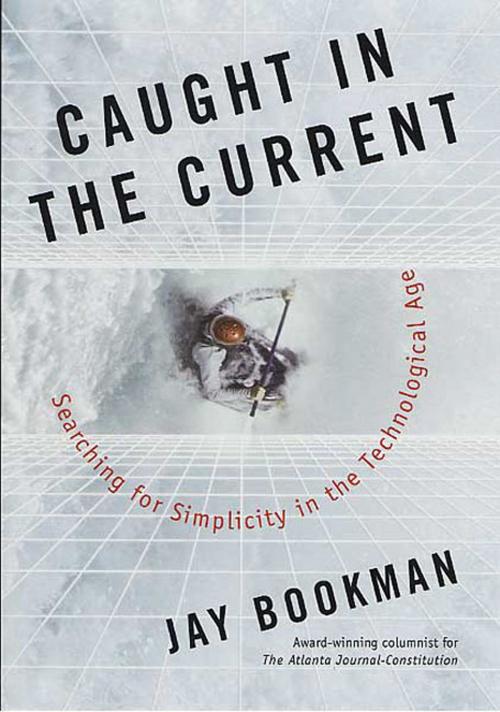Caught in the Current
Searching for Simplicity in the Technological Age
Nonfiction, Science & Nature, Nature| Author: | Jay Bookman | ISBN: | 9781466851610 |
| Publisher: | St. Martin's Press | Publication: | August 13, 2013 |
| Imprint: | St. Martin's Press | Language: | English |
| Author: | Jay Bookman |
| ISBN: | 9781466851610 |
| Publisher: | St. Martin's Press |
| Publication: | August 13, 2013 |
| Imprint: | St. Martin's Press |
| Language: | English |
Science tells us what is. Technology tells us what can be. But neither can tell us what ought to be.
As a science and technology journalist for the Atlanta Journal-Constitution, Jay Bookman has witnessed some of the most remarkable and exciting advances in human history-supercomputers, cyborgs, genetic engineering. Like the rest of us, though, he has also watched as ever-more sophisticated tools intended to make our lives easier and less stressful have often done the opposite. The problem, he says, lies not in our tools, but in ourselves.
In Caught in the Current, Bookman and four friends embark on their annual rafting trip down the Deschutes River in central Oregon. Leaving cell phones, pagers, and laptops behind, they float for 60 miles through stark desert canyons, whitewater rapids and some of the best trout-fishing in America. But this is also a journey of another sort, an exploration of the many ways in which technology has altered how human beings experience each other and the world around them.
We live today in the most connected society in history, and yet our sense of isolation has never been more acute. We communicate megabytes of data, but somehow knowledge or wisdom still escape us. The cell phone is our tool, our servant, but it is also a barbaric interloper that we have not yet dared to tame.
In his finely tuned prose, Bookman contrasts the rhythm of life on the Deschutes with the increasingly fragmented and chaotic pace of our electronic age and reveals how the momentum of technology often breaks the flow of life. Our time is segmented into tasks to be completed; our personal interactions often take place behind a flashing cursor; our focus is "faster," not "better." Transfixed by the marvels of technology, we've overlooked its profound impact on our community.
Neither a technophobe nor Luddite, Bookman accepts that technological change is inevitable and desirable. But in Caught in the Current, he also warns that we should not become passive subjects of that change, allowing ourselves to be tossed like helpless driftwood in the current.
Science tells us what is. Technology tells us what can be. But neither can tell us what ought to be.
As a science and technology journalist for the Atlanta Journal-Constitution, Jay Bookman has witnessed some of the most remarkable and exciting advances in human history-supercomputers, cyborgs, genetic engineering. Like the rest of us, though, he has also watched as ever-more sophisticated tools intended to make our lives easier and less stressful have often done the opposite. The problem, he says, lies not in our tools, but in ourselves.
In Caught in the Current, Bookman and four friends embark on their annual rafting trip down the Deschutes River in central Oregon. Leaving cell phones, pagers, and laptops behind, they float for 60 miles through stark desert canyons, whitewater rapids and some of the best trout-fishing in America. But this is also a journey of another sort, an exploration of the many ways in which technology has altered how human beings experience each other and the world around them.
We live today in the most connected society in history, and yet our sense of isolation has never been more acute. We communicate megabytes of data, but somehow knowledge or wisdom still escape us. The cell phone is our tool, our servant, but it is also a barbaric interloper that we have not yet dared to tame.
In his finely tuned prose, Bookman contrasts the rhythm of life on the Deschutes with the increasingly fragmented and chaotic pace of our electronic age and reveals how the momentum of technology often breaks the flow of life. Our time is segmented into tasks to be completed; our personal interactions often take place behind a flashing cursor; our focus is "faster," not "better." Transfixed by the marvels of technology, we've overlooked its profound impact on our community.
Neither a technophobe nor Luddite, Bookman accepts that technological change is inevitable and desirable. But in Caught in the Current, he also warns that we should not become passive subjects of that change, allowing ourselves to be tossed like helpless driftwood in the current.















